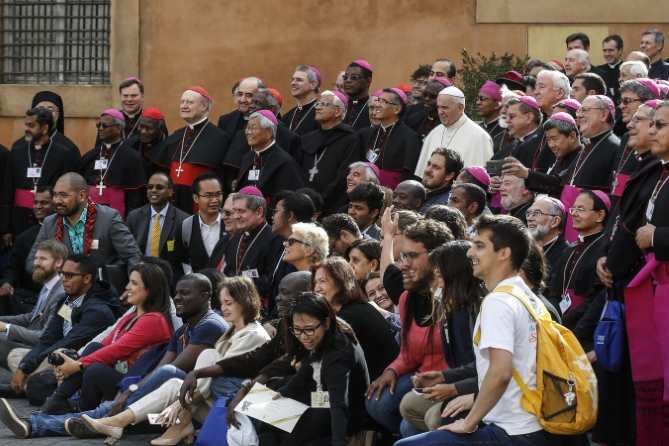|
Opinion: Letters- Is Priestly Celibacy Still Viable?
The New York Times
Readers wonder if it has a role to play in today’s Catholic Church; another defends the tradition. To the Editor: Re “What Is the Power of Celibacy?” (Op-Ed, Feb. 25): Celibacy is a gift to the church from those who are called to it, like those called to the religious life as monks or nuns. In the Bible, and in subsequent centuries, it was not a condition for priesthood. There were even married men elected to be bishop. Making it a condition for priesthood, even for those not called to it, results in a priesthood that does not represent the church at large and results in the many evils we have seen brought to light in recent years. Celibate clergy and lay people can do what married clergy and laity cannot, but equally the married can serve Christ in ways that the celibate cannot. The experience of married clergy in the Eastern Catholic Churches and the Anglican Ordinariates (established by Pope Benedict for those Anglicans who have entered full communion with the Catholic Church) needs to be called upon and listened to if the Catholic Church is to have a rounded view of what kind of priesthood is needed in our time. This is not a time for culture wars in the church but for a priesthood that serves the mission of the church today.
Michael Nazir-Ali To the Editor: News flash to Christopher Caldwell: It is not only non-Catholics who find Cardinal Robert Sarah and Pope Benedict XVI’s reasoning on celibacy “weird.” I have been a Catholic for 82 years. It’s in my bones. But as a woman I find the reasoning behind the arguments for celibacy in the priesthood specious. These rules are intricately bound up with the misogyny behind the historical denial of the priesthood to women. The Catholic Church rules demanding an exclusively male and celibate clergy deny women any role as full members of the community. This exclusionary practice began in the early church. I long for scholars like Mr. Caldwell to fully analyze the history of celibacy in the Catholic Church, inevitably including its links with institutional misogyny.
Judith Koll Healey To the Editor: In his article supporting the celibacy of priests, Christopher Caldwell offers an interpretation of the Eucharist, in which, quoting Cardinal Robert Sarah of Guinea, the priest “offers his body, as a man … in continuity with the sacrifice on the Cross.” But Mr. Caldwell’s infusing gender — the maleness of the priest — into the Eucharist has no bearing on the significance of Christ’s sacrifice on the cross or on our contemplation of the church as the body of Christ. The words “this is my Body” are those of Christ, not that of whichever priest happens to be celebrating the Mass. Moreover, Mr. Caldwell’s related appeal to the analogy of the church as a faithful bride of Christ implies nothing about priestly celibacy. If it did, all Christians, not just priests, would be called upon to be celibate. Indeed, Mr. Caldwell’s quoting of Paul VI’s description of priestly celibacy as a “gift to the church” mischaracterizes the importance of what ought to be an individual priest’s personal decision. I know of no congregants or church members who are grateful that their parish priest is celibate.
Carl Coniglio To the Editor: The Rev. Andrew Greeley once wrote a book titled “Religion as Poetry.” In it he explored the Catholic sacramental imagination. Catholicism uses symbols, rituals and stories to convey God’s message and grace. Although celibacy is not intrinsic to priesthood, the celibate man is an authentic sign of transcendence, pointing to something beyond the material world. This is the power of celibacy. For secularists, the possible gain in the number of priests would justify a change in the discipline. For the poets among us, the short-term gain is not worth losing a powerful reminder of the long-term goal.
Michael P. Orsi
|
.
Any original material on these pages is copyright © BishopAccountability.org 2004. Reproduce freely with attribution.
